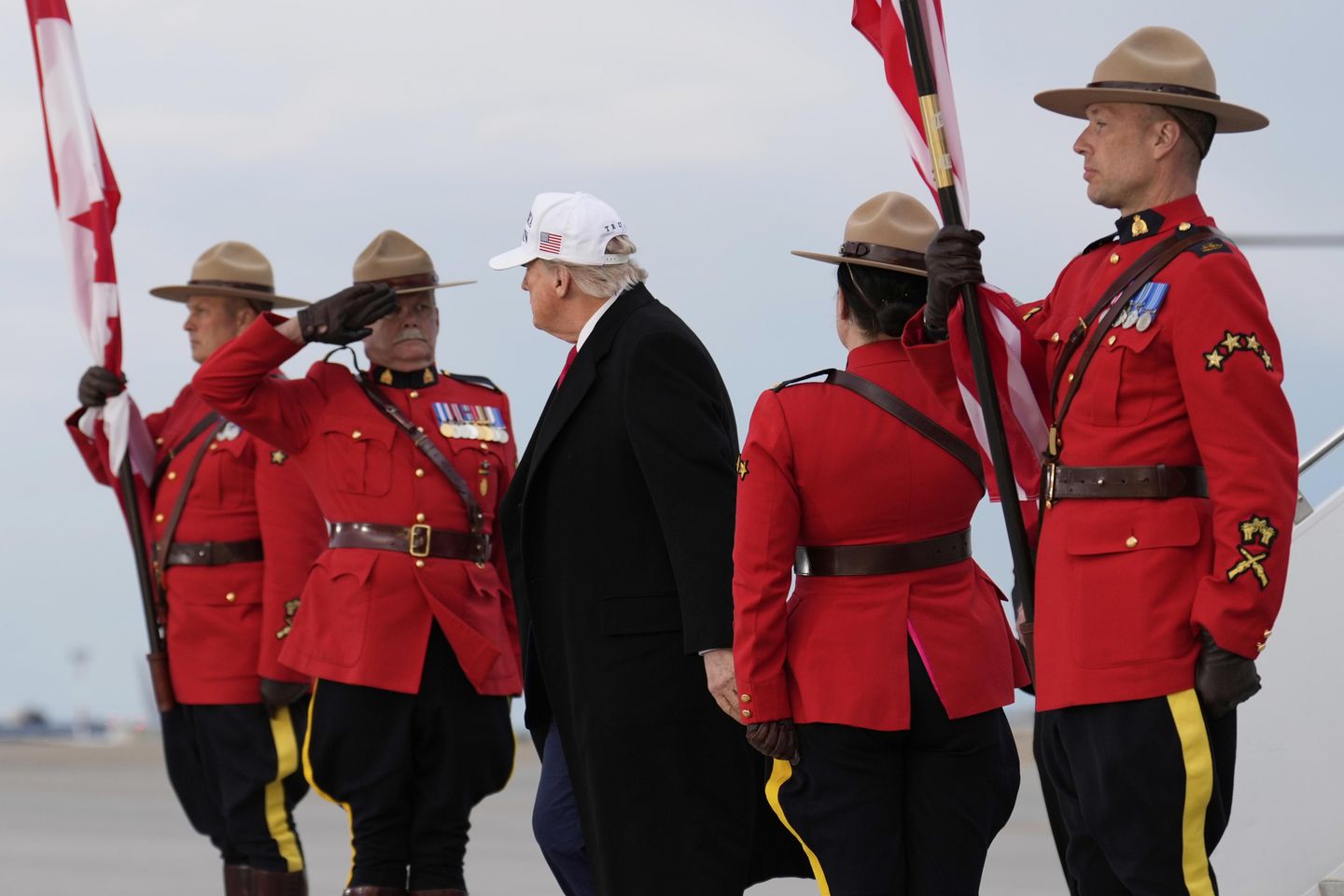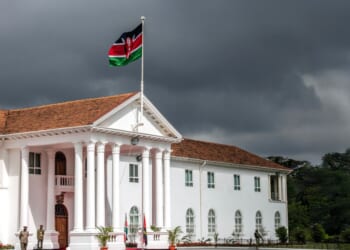
Canada bowed to White House demands and decided not to collect a tax on U.S. tech companies as planned Monday, a sign that President Trump’s hardball tactics are paying off as he cajoles dozens of trading partners to strike deals or face stiff tariffs on goods they send to U.S. markets.
Ottawa said it planned to pursue formal legislation rescinding its 3% digital services tax, about 48 hours after Mr. Trump canceled trade negotiations with Canada because of the levy.
Canadian Prime Minister Mark Carney’s reversal cleared the way for trade talks and a potential deal by July 21.
“It’s very simple. Prime Minister Carney and Canada caved to President Trump and the United States of America,” White House press secretary Karoline Leavitt said Monday. “President Trump knows how to negotiate, and he knows that he is governing the best country and the best economy in this world, on this planet. And every country on the planet needs to have good trade relationships with the United States.”
Ms. Leavitt said Mr. Carney called Mr. Trump late Sunday to inform him of the decision.
Mr. Trump has been tangling with Canada over trade since the start of the year, though the White House set a July 8 deadline for most countries to strike trade deals or face the reimposition of hefty levies he outlined in April. The president is talking tough, saying countries need to agree to fair terms or prepare for new levies as of July 9.
“He is going to set the rates for many of these countries if they don’t come to the table to negotiate in good faith, and he is meeting with his trade team to do that,” Ms. Leavitt said.
Mr. Trump said Japan would likely be one of the countries assigned a tariff, despite ongoing negotiations that pivot in part on Japan’s opposition to tariffs on its cars.
The president, writing on Truth Social, said countries became “spoiled” on trade with the U.S. and said Japan refuses to accept American rice despite suffering from shortages.
“In other words, we’ll just be sending them a letter, and we love having them as a Trading Partner for many years to come,” Mr. Trump wrote.
The U.K. struck an early deal-in-principle to allow U.S. goods into its markets in exchange for tariff relief and aerospace transactions. China and the U.S. are maintaining a channel of communications to settle deep-seated trade disputes.
The White House said Monday that India may be nearing a last-minute deal with the U.S.
“Countries are pursuing different strategies in part because the trade situation and domestic economies are so different,” said Wayne Winegarden, a senior fellow in economics at the Pacific Research Institute. “I am not sure it is correct to claim that any country is ’bowing’ to demands. It is a very high stakes game of ’poker’ right now so [it is] difficult to know who is bluffing and who really holds the strongest hand.”
The Canadian digital tax would have charged 3% of digital services revenue above $14.6 million that a company brings in from Canadian users in a given year.
“The digital services tax was a terrible idea,” Mr. Winegarden said. “The tax would have increased costs that Canadians pay for these technologies harming broader economic growth. Some of the burden would have also reduced revenues for U.S. technology companies as well. Consequently, rescinding the tax is good news for both Canadians and U.S. technology companies.”
In canceling trade talks with Canada on Friday, Mr. Trump threatened simply to name a tariff amount on Canadian goods. By late Sunday, the Canadian Department of Finance had decided to scrap the tax in “anticipation of a mutually beneficial comprehensive trade arrangement with the United States.”
“Canada is engaged in complex negotiations on a new economic and security partnership with the U.S.,” Canadian Finance Minister François-Philippe Champagne said on X. “Rescinding the DST will allow the negotiations to make vital progress and reinforce our work to create jobs and build prosperity for all Canadians.”
As it stands, Canada faces a 25% tariff on goods it sends to the U.S., though many products are exempted under the U.S.-Mexico-Canada Agreement that Mr. Trump negotiated in his first term. Canada is also dealing with Trump-imposed tariffs on steel, aluminum, cars and car parts.
Tariffs are taxes or duties paid by importers on the goods they bring in from foreign markets.
Mr. Trump imposed a blanket 10% tariff on all imports, though Canada and other countries face higher levies because the U.S. is trying to rebalance trade deficits, meaning cases where other countries sell plenty of products to U.S. consumers but don’t buy nearly as much from American producers.
It is unclear if the removal of the digital tax will strengthen or weaken Canada’s hand in dealing with Mr. Trump on trade. The president tends to dictate the terms he wants, saying the U.S. holds the cards in the global economy.
“If he wants to raise tariffs, he will. He has an unlimited number of excuses, ranging from fentanyl, immigration, a digital services tax, or something else,” said Ryan Young, a senior economist at the Competitive Enterprise Institute, a free-enterprise think tank. “While coming to an agreement might buy some short-term stability, tariffs will remain volatile until Congress reclaims the tariff-making powers it delegated away, courts declare those delegated powers unconstitutional, or Trump’s term ends.”
Mr. Trump is also tangling with the EU, citing its own digital tax and slow-moving trade negotiations.

















